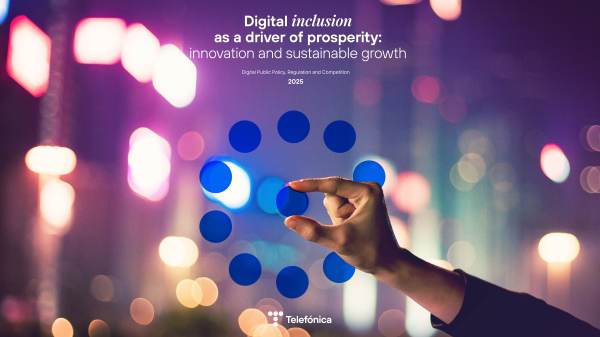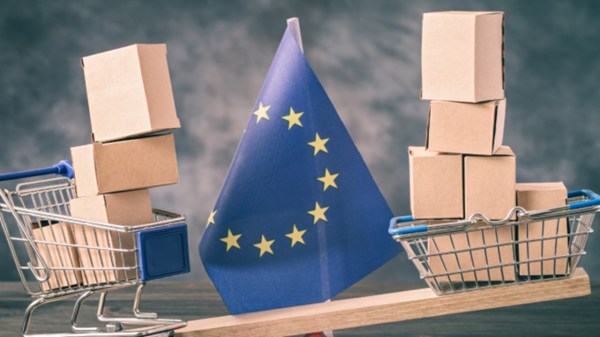 We welcome the new Digital Single Market Strategy the European Commission published today. The Commission strategy rightly identifies a series of actions to fully exploit the potential of networks and services to contribute to the European economy.
We welcome the new Digital Single Market Strategy the European Commission published today. The Commission strategy rightly identifies a series of actions to fully exploit the potential of networks and services to contribute to the European economy.
Those actions are gathered into three pillars:
• improve access to online goods and services across Europe,
• create the right conditions for digital networks and services to flourish,
• maximize the growth potential of the European Digital Economy.
We at Telefónica believe that Europe has a clear potential to be a world leader in information and communication technologies if the right policies are applied. That is why we have been asking for ambitious policy measures that unfold the opportunities offered by a Digital Single Market for the economy and societies in Europe. We welcome that the European Commission agrees that EU policy needs substantial changes in order to maximize its potential for growth and job creation.
Today’s Communication from the Commission can only be the starting point. It is now necessary to develop the foreseen actions and this need to happen as fast as possible. The Commission strategy is broad, but we believe some issues are especially necessary to tackle:
• Networks. As the Commission recognizes, all the activities in the digital economy depend on broadband networks, so the review of the telecom rules in order to provide a new regulatory framework that incentivizes the investment in high-speed broadband networks is crucial. The Commission timidly recognizes that the EU has an underinvestment problem as the current framework was designed to spur competition in existing networks, but was not conceived to lead to the roll-out of new networks. Following this correct analysis, now is the time to implement the policies and change outdated regulatory models. Taking that into account, the first priority would be a new investment-friendly regulation for new generations of networks, encouraging investment and infrastructure competition in Europe.
• Ensuring a level playing field for all market players. Our current regulatory framework was established based on a number of assumptions that have drastically changed. There has been a striking evolution in industry, technology and the way customers perceive and consume digital services, resulting in converged markets. This changed market situation makes it crucial to modernize policies to guarantee that European digital consumers have the same level of protection regardless of the services they choose or which company provides it. Today, some elements of the Digital Economy and especially those related to the telecommunication sector are subject to stronger regulations and supervision and European service providers are often put in disadvantage when compared with Non-Europeans.
What Europe and Europeans need is a change of the rules and a consistent application of them to all services and players that compete in the European market place and offer its services to European customers. This is a basic prerequisite for fair competition between all players in a globalized economy and lack of such a Level-Playing-Field would help only voices that argue for a more closed, protectionist regime in Europe. In this regard, we fully support the intention of the Commission to address this problem and encourage it to open a public debate and in-depth analysis of competitive dynamics in digital markets, taking into account all the relevant elements of the digital value chain to prevent abuse of dominance by any platform.
This is of importance not only for Telefonica, but also especially for our customers, who want to be able to move their applications, music and data between digital platforms and smart devices and have an open and safe Internet experience.
• Spectrum. A more efficient and agile framework for spectrum policy is clearly required and Telefonica fully supports the diagnosis of the problem made by the Commission in this regard. The European institutions and Member States need to agree on a framework which allows for the timely access to the spectrum resources in fair conditions.
These issues are urgent as digital markets develop in lightning speed in comparison to traditional ones. We are aware that this creates a considerable challenge for policymakers and competition authorities. Telefonica believes that the EU will need to act faster than envisaged in the Commission’s Communication. Specific measures and quick wins to deal with the most urgent matters should be adopted and thus achieved as soon as possible, using all policy tools available to avoid overly never ending legislative procedures. Building EU policies for the digital world also means adapting its processes and procedures to the speed of the Internet!
As a conclusion, this strategy is a positive first step for the political challenges that we have ahead for the next months and years, and we are looking forward to work together with the Commission and the other European Institutions to shape a new regulatory framework for the European Union.
Europe urgently needs a policy framework that benefits all European citizens and drives our digital economy back to the top.
Let´s take the speedboat to get there!















